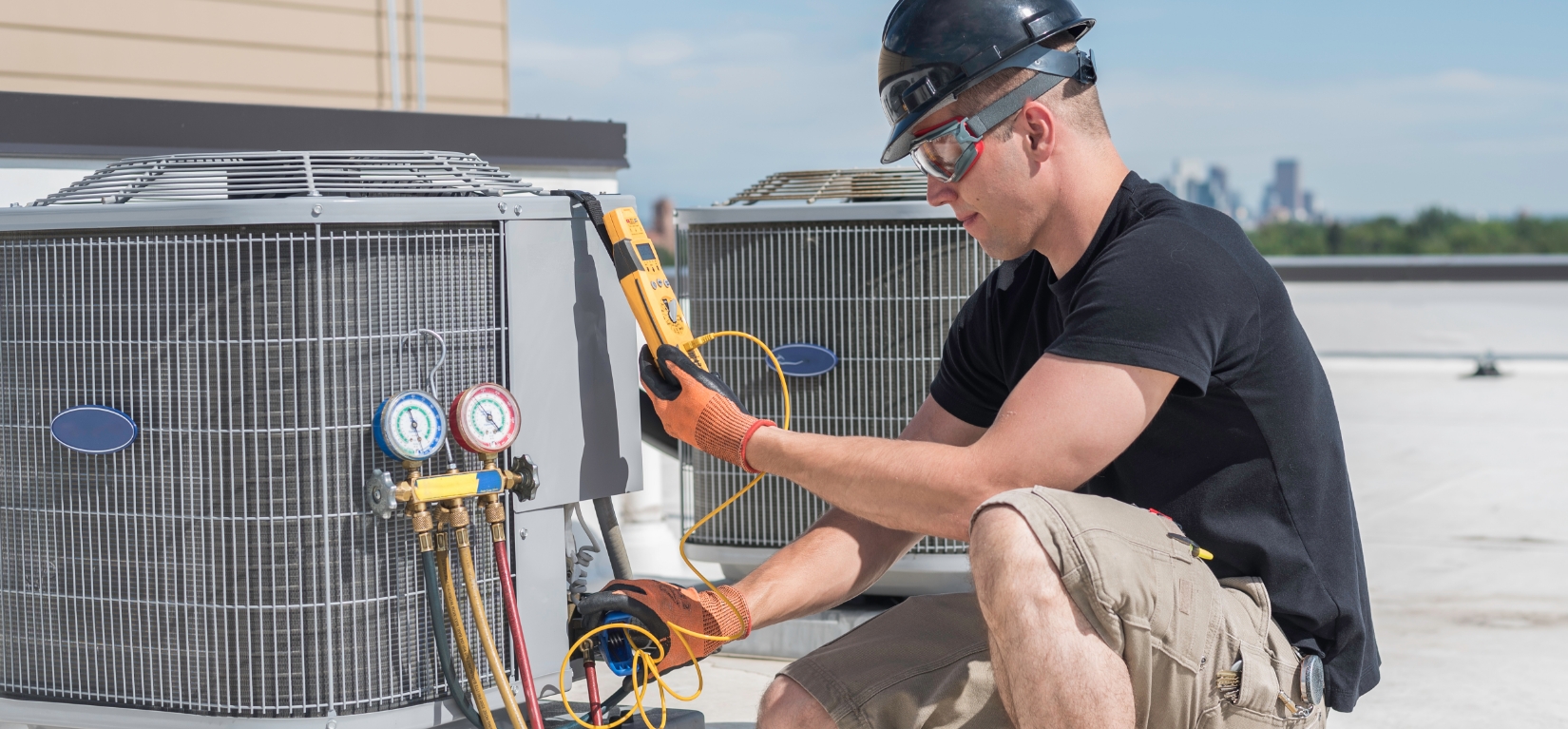Air Conditioner Repair

Why Is My AC Not Working?
Determining the cause of your A/C malfunction requires a hands-on inspection and testing. Here are common issues our Aire Serv service professionals encounter during air conditioner repair service visits:
Power loss: Faulty wiring, tripped breakers, or overheating can lead to power loss. Our professionals can rectify wiring issues, reset breakers, and ensure unobstructed airflow to the outdoor unit.
Worn-out fan belt: A squealing sound often indicates a worn-out fan belt, which, if left unaddressed, can result in costly repairs.
Refrigerant leak: Hissing sounds indicate a refrigerant leak, which not only reduces efficiency but also harms the environment. Our trained professionals can recharge the AC system and replace leaking tubing.
Frozen evaporator coil: Continual operation, low refrigerant levels, or poor circulation can cause the evaporator coil to freeze, leading to warm air exiting registers. Turning off the AC and contacting a professional for repairs is advisable.
Defective fan motor: A defective fan motor hampers air circulation. Repairs may suffice, or a motor replacement may be necessary.
Defective compressor: Warm air despite the fan running indicates a faulty compressor, which is one of the costliest AC components. Consult with your service professional to weigh repair costs against replacement.
Clogged condensate drain: Debris accumulation can clog the condensate drain, causing water damage. Our professionals can prevent future clogs by flushing the system and applying algaecide.
Prompt, professional home air conditioner repair is essential when your thermostat rises and your AC falls short.
Should I Repair or Replace My Air Conditioner?
When advising customers on repairing or replacing their AC units, we consider three factors:
- Age: AC units over ten years old experiencing issues may warrant replacement.
- Investment cost: Assessing whether a new system would offer better long-term value compared to repairs.
- Utility rates: Upgrading to a more efficient unit can lead to significant energy bill savings.

